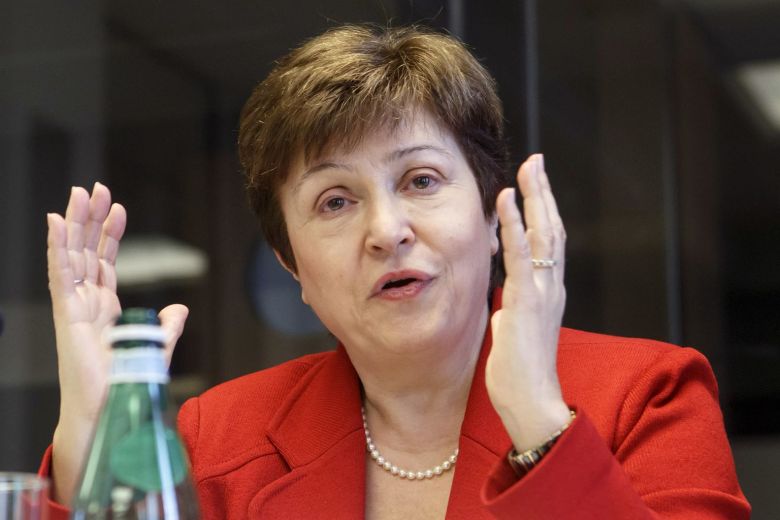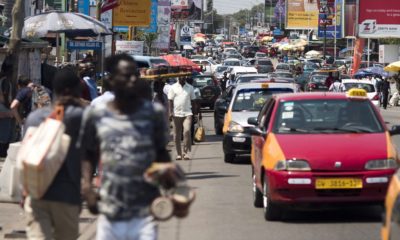IMF Visits Senegal to Assess COVID-19 Impacts
End-of-Mission press releases include statements of IMF staff teams that convey preliminary findings after a visit to a country. The views expressed in this statement are those of the IMF staff and do not necessarily represent the views of the IMF’s Executive Board.
The Senegalese economy is expected to contract this year as a result of disruptions in economic activity due to the COVID-19 pandemic. A recovery is underway, but uncertainty regarding its speed and extent remains significant; execution of the revised 2020 budget is proceeding largely in line with expectations, with a robust implementation of the Economic and Social Resilience Program (PRES) to address the COVID-19 pandemic; the authorities and the IMF team made considerable progress on key parameters for the draft 2021 budget, ahead of the second PCI review mission planned for late October 2020.
A staff team from the International Monetary Fund (IMF), led by Ms. Corinne Deléchat, conducted a virtual mission from September 9-18, 2020, to update macroeconomic projections, discuss 2020 budget execution and plans for the 2021 budget. At the conclusion of this mission, Ms. Deléchat issued the following statement:
“The Senegalese economy has been severely hit by the COVID-19 pandemic, with real GDP growth now expected to contract by 0.7 percent this year, reflecting the larger-than-anticipated disruptions in economic activity stemming from the pandemic and strict containment measures. A gradual recovery started in May with the lifting of most COVID-19-related restrictions, followed by the reopening of borders in July. Senegal’s strong health response is showing encouraging signs with a steady decline in new COVID-19 cases and hospitalizations over the past four weeks. In 2021, output is projected to rebound back to above 5 percent, boosted in part by favorable prospects for agriculture. This projection is however subject to significant downside risks, reflecting uncertainties around the speed of the global recovery and the evolution of the pandemic, which could continue to affect important sectors of the economy such as tourism, transport and hospitality.
“Budget execution through end-August 2020 was broadly satisfactory, and the objectives for the remainder of the year set in the revised 2020 budget remain within reach. Uncertainties related to the mobilization of programmed resources however remain. Therefore, the mission encourages the authorities to continue with their prudent approach in order to maintain the deficit at around 6 percent of GDP as envisaged in the 2020 revised budget. The mission commends the authorities for the strong and transparent implementation of their Economic and Social Resilience Program (PRES). Most of the planned COVID-19 measures have already been executed, as detailed in the June 2020 quarterly budget implementation report. The mission welcomes the recent repeal of the decree on derogatory procurement procedures for COVID-19 related spending, which will from now on follow the normal procurement procedure. The authorities have also finalized a new recovery plan which aims to support a return to strong and inclusive private sector-led growth, focusing on accelerating the structural transformation process and enhancing the economy’s resilience through diversification of the productive base.
“The mission and the authorities made significant inroads in discussing the contours of the draft 2021 budget. Given high uncertainty and lingering effects of the pandemic on some sectors of the economy, the draft 2021 budget should aim to strike a balance between supporting the recovery, including through a robust investment plan on the one hand, and fiscal and debt sustainability also consistent with the WAEMU’s external stability on the other. To that effect, the 2021 fiscal stance should continue to signal a strong commitment to return gradually to a budget deficit of 3 percent of GDP by 2022, in line with the WAEMU convergence criterion, as the situation normalizes. Discussion on the draft budget will continue in the coming weeks.
“The second PCI review mission will take place in late October 2020, with a Board meeting tentatively planned for December 2020.
“The mission wishes to thank the authorities for the frank, open and constructive dialogue.”

 News3 weeks ago
News3 weeks ago
 Business3 weeks ago
Business3 weeks ago
 Technology3 weeks ago
Technology3 weeks ago
 Investment3 weeks ago
Investment3 weeks ago
 Banking Sector3 weeks ago
Banking Sector3 weeks ago
 Banking Sector3 weeks ago
Banking Sector3 weeks ago
 Appointments3 weeks ago
Appointments3 weeks ago
 Investment3 weeks ago
Investment3 weeks ago





























